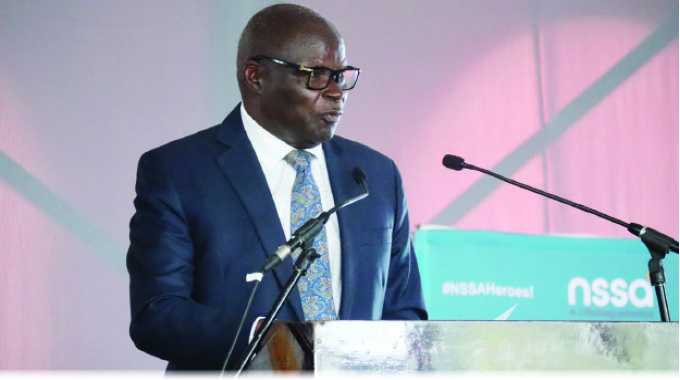Zimbabwe trims OSH casualties, realigns regulations

Michael Magoronga, [email protected]
GOVERNMENT is seized with crafting a refined Occupational Safety and Health (OSH) legislation that would encompass climate change issues among others, as the country closes the gap in trimming down injuries and sickness in the workplace.
According to the National Social Security Authority (Nssa), an estimated 4 000 workers get injured or fall sick at the workplace in Zimbabwe annually due to occupational hazards and other work-related incidents.
This emerged during the National Social Security Authority (Nssa) Engineers Workshop, which ended in Kwekwe on Thursday and was focused on addressing occupational hazards and ensuring safety in the workplace.
Speaking at the event, Public Service, Labour and Social Welfare Minister July Moyo said the country was moving to standardise OSH issues in line with International Labour Organisation (ILO) standards.
“As Government, we are crafting a piece of OSH legislation that should ultimately culminate into an Act probably by the end of the year.
“This should be comprehensive and all-encompassing covering all sectors of the economy from the smallest to the biggest and also addresses climate change issues,” he said.
“We are doing this in consultation with a number of stakeholders so that everyone should contribute towards the legislation,” said the minister.
“Trade has become a major driver for economic development and if we don’t adhere to international standards and conventions, the international world may use them as barriers to trade.
“If we slacken our OSH standards, some countries may use that as barriers of trade and it negatively impacts our economy.”
Noting concerns over child labour issues and the use of dangerous substances as the major targets, especially in the mining and agriculture sector, Minister Moyo said these must be addressed as they affect the major drivers of the economy.
He reiterated that the informal sector was a major component of the economy and as such should be incorporated by the OSH.
“There is a lot of production, which takes place in private entities like furniture manufacturing. They should benefit from your professionalism as engineers and also in line with living no one and no place behind, all sectors should benefit from the OSH division of Nssa,” he said.
Minister Moyo implored engineers to be innovative, take advantage of artificial intelligence and design climate-proofed solutions for people with disabilities in mind.
“Production processes should have standards that are climate-proofed. We are revising the Standards Bill so that it can be comprehensive and improve competition regionally and internationally,” he said.
In an interview on the sidelines of the meeting, Nssa acting chief executive officer, Dr Charles Shava, said while the injuries figures had increased in the last three to four years to about 500 per year, enhanced interventions by the entity’s department of occupational safety and health (OSH) has resulted in a significant drop.
“We are actually glad that our Lost Time Injury Frequency Rate (LTIFR), which is the number of lost time injuries occurring in a workplace per a certain period, has actually dropped from about six people to about 1,5,” he said.
“Our ultimate target is less than one, which means that we don’t want any injuries at all. We are going to try to improve those numbers because ultimately, the worker is the most important component at any workplace.”
The OSH department used to fall under the Ministry of Labour as a standalone ministry then and was incorporated under Nssa, a Government arm.
“When the department was incorporated under Nssa in 1990, there were some gaps in terms of addressing OSH issues in the country. Issues like funding, staffing and skilled employees, among other challenges, hindered operations but over the years there have been notable improvements,” said Dr Shava.
“The new minister and board are very instrumental and have ordered that skilled employees be employed to fill that gap and that all those challenges be addressed.”
He told delegates earlier that Nssa had made a deliberate move to ensure that the private sector was covered under OSH programmes.
“We have made significant strides in ensuring that the informal sector, which is responsible for about 80 percent of our production, is covered under Nssa.
“We are working with development partners in those endeavours and already, we have covered places like Chivhu, Bulawayo and Harare,” he said.
More than 300 engineers from across the country and from across the economic sectors attended the workshop.








Comments